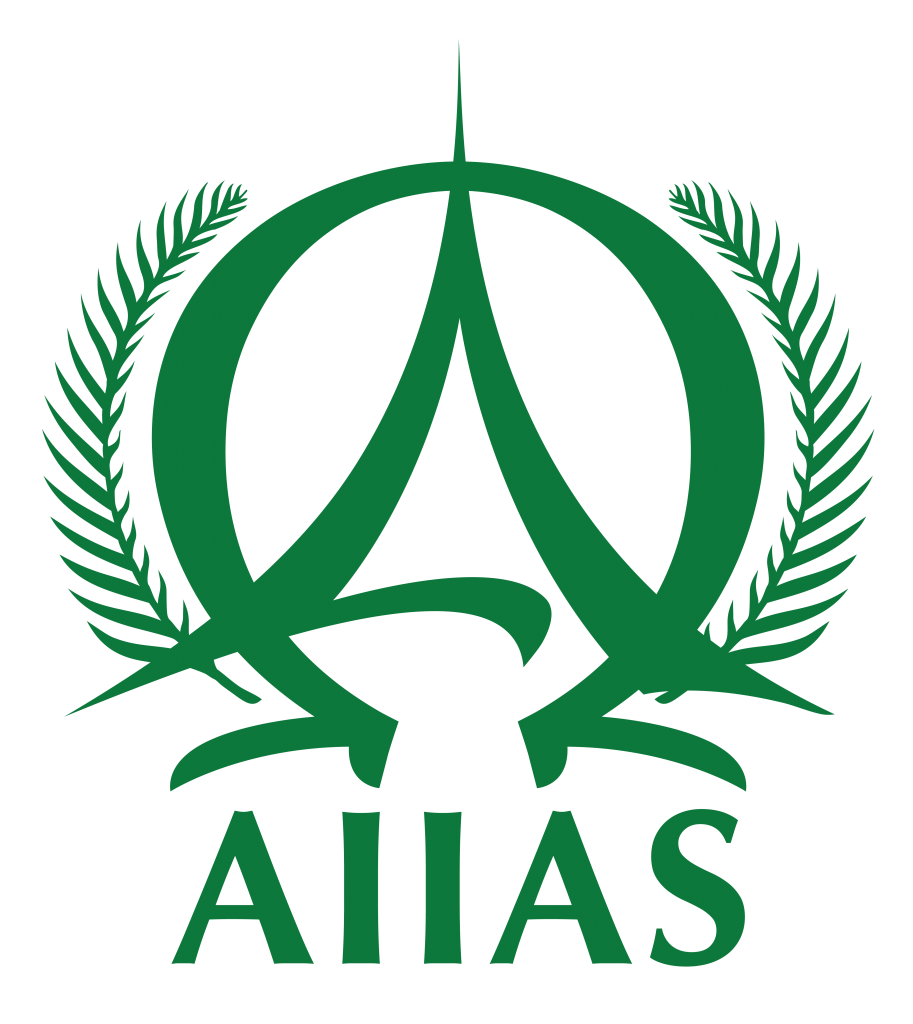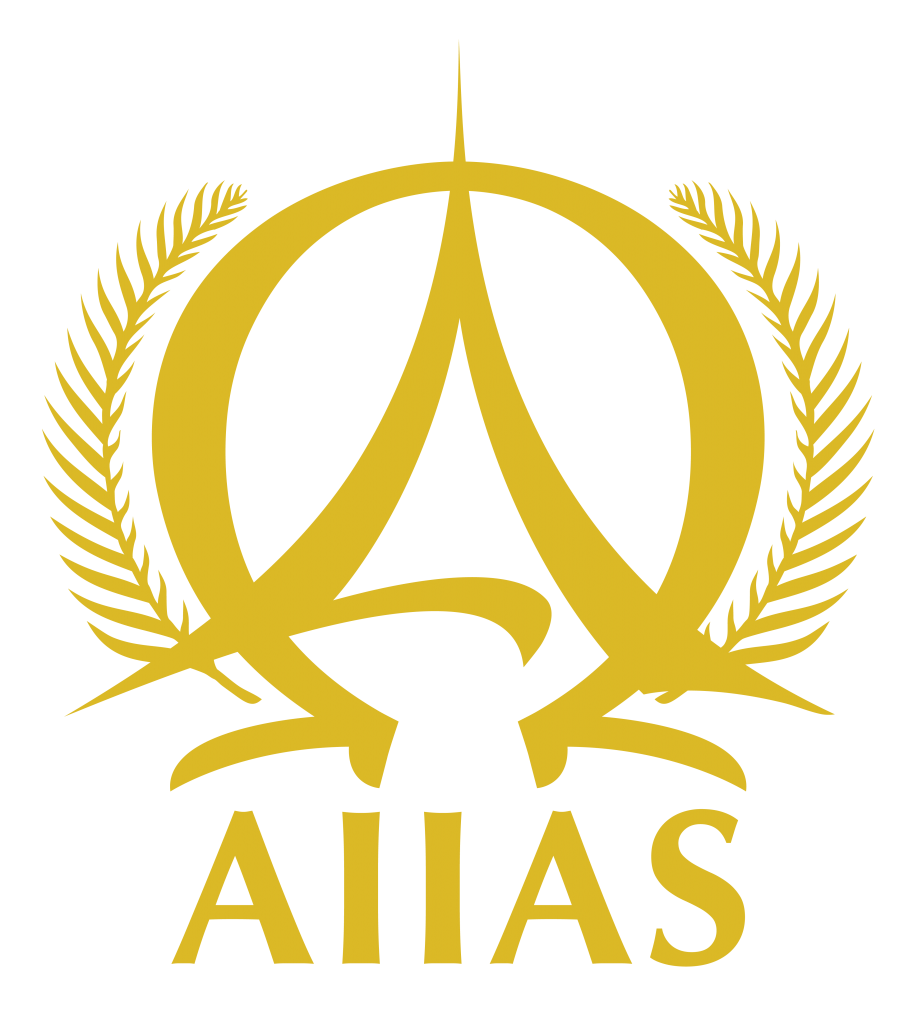Three days after Taal volcano blanketed the campus and the surrounding areas with ash on January 12, 2020, residents of the Adventist International Institute of Advanced Studies came together for a clean-up drive.
AIIAS distributed eight hundred N95 face masks at the start of the first day of clean-up. More are expected to arrive in the next week. “We are grateful to the donors who have provided additional face masks,” says AIIAS President, Dr. Ginger Ketting-Weller. “Because the primary threat was long-term respiratory damage from ash inhalation, it was crucial to wait until everybody received the recommended N95 masks.”
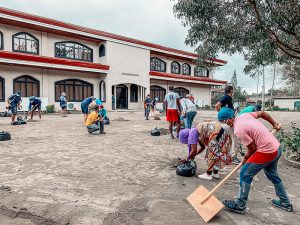
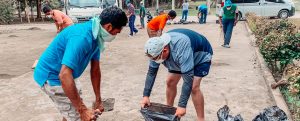
Volunteers and staff began with academic, administrative and student residence areas. A company was additionally hired for ash removal. Water on campus has been tested and is safe for drinking. Nevertheless, a local company brought their water filtering services, provided free of charge.
Week of Prayer meetings previously scheduled with speaker Dr. Elizabeth Talbot from Jesus 101 Biblical Institute, a North America Division ministry, commenced less than 24 hours after active ash fall ceased. Although she had been at a viewpoint restaurant from which she personally happened to observe the beginning of the powerful eruption taking place, Dr. Talbot chose to stay and minister to the campus. “The safest place for me is where Jesus wants me to be,” Talbot said on Wednesday morning.
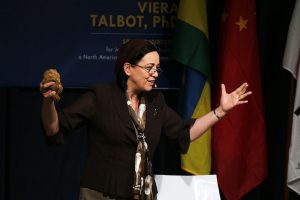
Attendees of the Week of Prayer meetings have expressed that they have been immensely blessed by Talbot’s timely and encouraging gospel messages.
A few embassies evacuated their citizens from Silang within 24 hours of the start of the volcano eruption. Most students who were temporarily evacuated are returning to the campus. Some students have chosen not to remain enrolled during this school term. Other students have sent family members back to their home countries, at least temporarily.
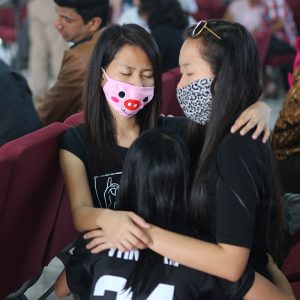
Offices at AIIAS reopened on January 16 while classes have remained suspended until Monday, January 20, pending confirmation from the provincial government. The faculty met to discuss ways to be flexible in teaching and supporting students during the shortened term, including providing options for blended online learning and holding additional class sessions.
Service and mission outreach emerged early in the week following the eruption. Despite the challenges on campus, students and faculty have donated money, clothing, and relief supplies for the evacuees of the severely affected areas near the volcano. Others have taken water to villages that have lost access. Still, others have joined ADRA in their relief operations.
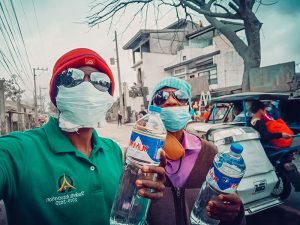
Campus chaplains have been visiting students and their families throughout the week to pray and listen. Counseling services are available to those needing support. Additionally, the celebration of the worldwide “10 Days of Prayer” program on campus has added time for community-building and bonding.
On behalf of AIIAS, Dr. Ketting-Weller offers thanks to those who have been supporting the institution in a variety of ways. “We are grateful to God for His protection and for all who have been praying for us around the world.”
The Philippines Institute of Volcanology and Seismology (PHIVOLCS) in their Friday, January 17 morning report stated that “the activity in the Main Crater in the past 24 hours has been characterized by steady steam emission and infrequent weak explosions. There has been a continuous seismic activity which may lead to further eruptive activity. Alert Level 4 remains in effect for possible hazardous eruptive activity.”
AIIAS is a graduate-level institution operated by the General Conference of the Seventh-day Adventists located in Silang, Cavite, Philippines. AIIAS prepares leaders in areas of business, education, public health, and religion through distinctively Seventh-day Adventist graduate education, excelling in spirituality, scholarship, and service.
